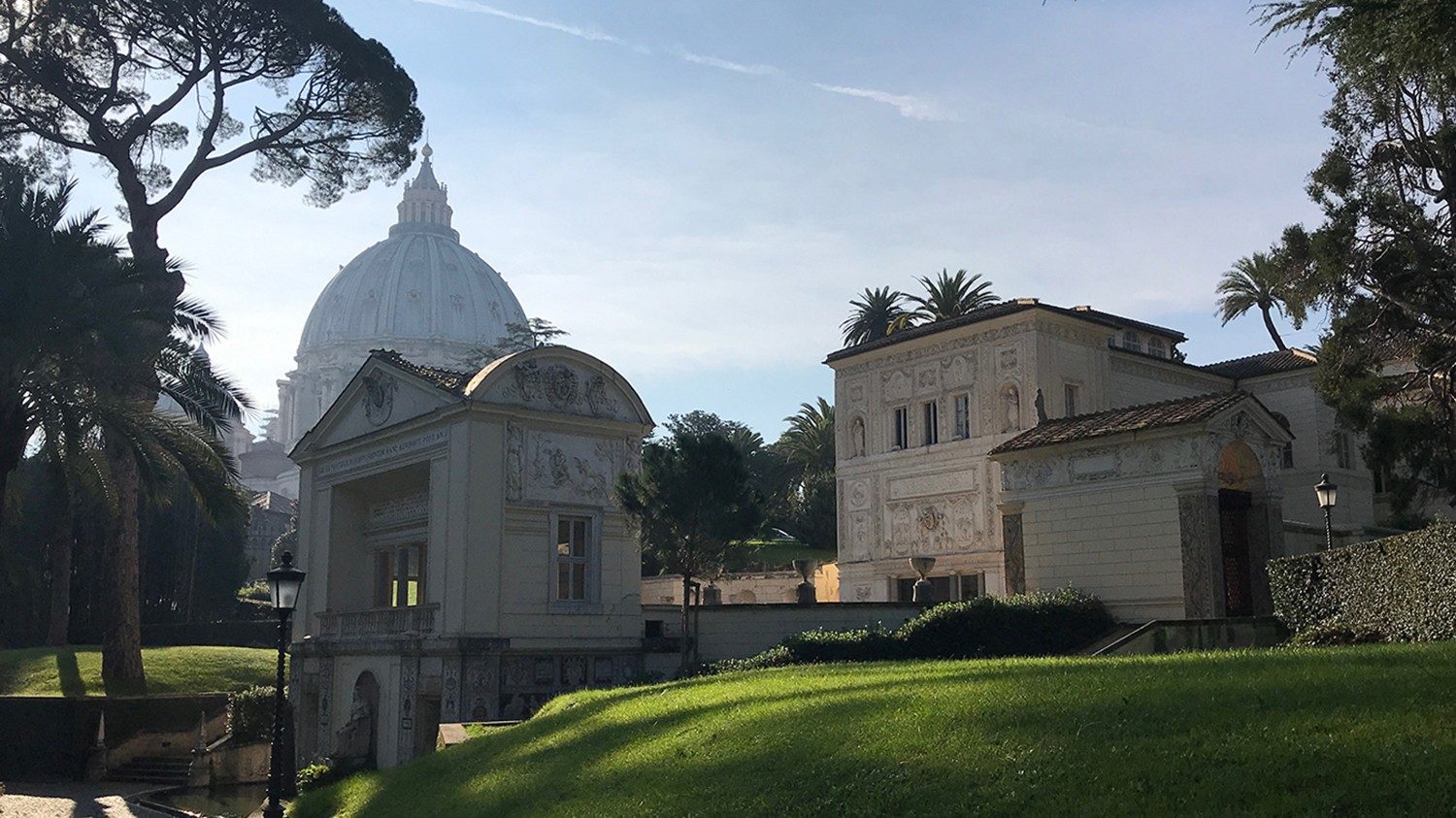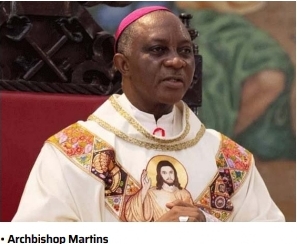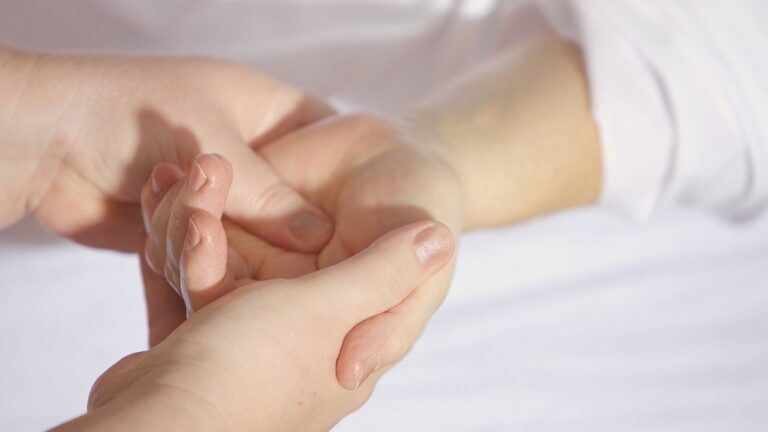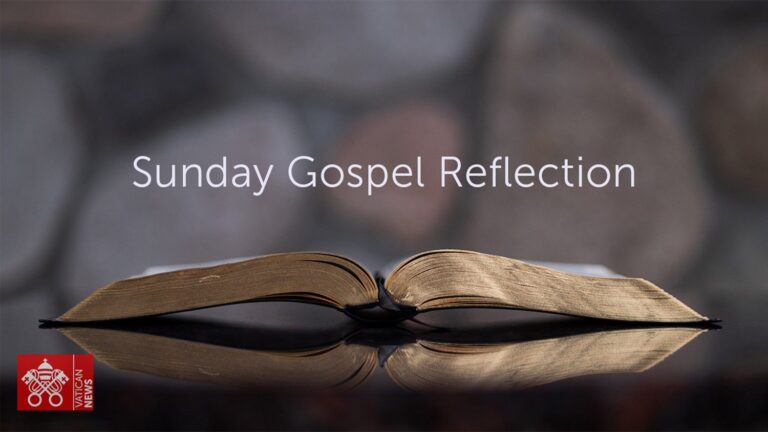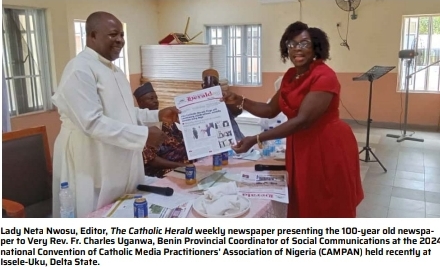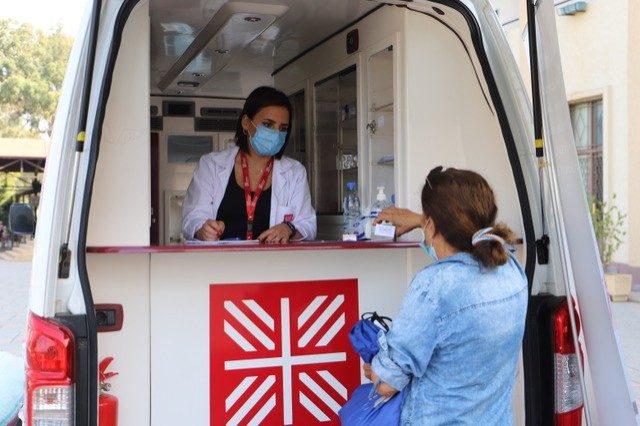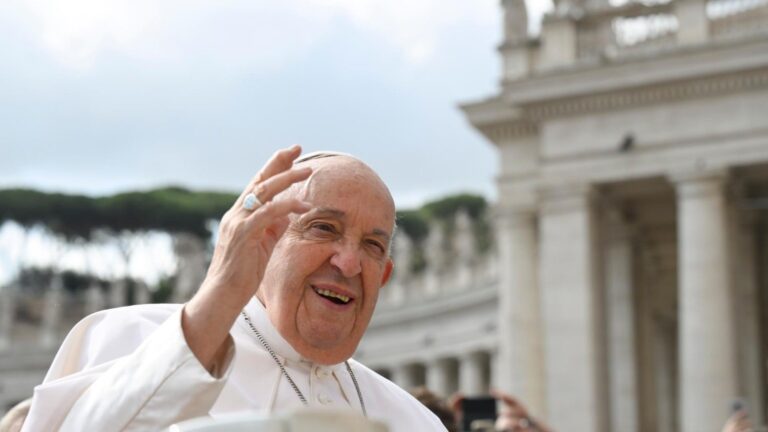Vatican conference on building a network of “cities of refuge”
The Pontifical Academy of Sciences hosts a conference focused on the transformative potential of art, which begins with the Pope's call to establish a network of “cities of refuge” and the inauguration of the photo exhibition ” Changes.”
By Béatrice Guarrera
From the pride of a leader of an indigenous community in the Brazilian Amazon to the beauty of the Australian sky that seems to touch the sea, to the lands ravaged by drought in Bangladesh due to climate change: here are some some of the 24 photos. which make up the photographic exhibition “Changes”, inaugurated Tuesday May 7 in St. Peter's Square and organized by Lia and Marianna Beltrami, with the Dicastery for Communication and in collaboration with the Dicastery for the Promoter of Integral Human Development and the Laudato If ' Higher Education Center.
Speaking to the Vatican media, Lia Beltrami explained that “the exhibition is part of the project “Emotions to generate change”, in collaboration with Formidable Partners, which is born from the desire to put art at the service of change, as Pope Francis asks. do in his encyclicals Laudato si', Fratelli Tutti, and in Laudate Deum. It is a “change” which has been interpreted by photographers from the four corners of the world, and who are perhaps people who have themselves been confronted with an escape, with a difficulty. Ikoutas, Asaf Ud Daula, Sebastiano Rossitto, Ferran Paredes Rubio and Francesca Larrain, present at the opening of the exhibition in St. Peter's Square.
“The exhibition speaks to us, if we can express it that way, of an integral vision of a disintegrated era. For this reason, it involves and challenges communication, which is often so polluted today,” said Paolo Ruffini, prefect of the Dicastery for Communication, during the conference held in the afternoon at the Casina Pio IV of the Vatican, seat of the Pontifical Academy of Sciences. “The photos,” explains the prefect, “look at us, they open the eyes of our heart to ourselves, transform us by revealing to us the secret of seeing beyond appearances. Their cry is silent which tears apart apathy. It reveals beauty and leads to its rebirth. It captures suffering, and makes it cry out, it unmasks lies by revealing them as they are: lies in disguise. the future, by building relationships between people who, in different ways, combine beauty, truth and justice,” Ruffini said.
Indeed, creative talents capable of generating change were at the center of the conference, which was attended by the curators and photographers of “Changes”, as well as artists, journalists, directors and personalities from the academic world, with different personal profiles. and professionals who share “the same desire to evolve for the better”, underlined the prefect: “We all know that there is no recipe, no algorithm, no formula for our work, but only a endless quest. A journey driven by the will and the ability to be amazed and the desire to amaze. To remain restless and full of passion, and to cultivate concern as a path to truth” as well as “the beauty that demands to be shared”.
And it is on this aspect of passion and beauty, combined with the theme of emotions generating change, that the conference participants were called to dialogue, because “it is the relationships between people that make things happen “. “So – continued Ruffini – this is why we are here today. To establish or strengthen the relationships between those who create beauty, those who work to communicate beauty and truth, and those who understand the economy as a care for our common home.”
“Art,” he continued, “as Pope Francis said last week in Venice, has the status of a “city of refuge,” a city that disobeys the regime of violence and discrimination for create forms of human belonging capable of recognizing, in particular, it would be important, insisted the prefect, that the various artistic practices could be established everywhere like a sort of network of “cities of refuge”, collaborating to free the world from the insane . and meaningless antinomies, but which seek to take over in racism, xenophobia, inequality, ecological imbalance and aporophobia, this terrible neologism which means “fear of the poor”. we are already a network.
Based on these thoughts, the guests then began to offer their own perspectives. Like that of the young Giacomo Mattivi on the association born from his family, “which faced the difficulty of life, namely my rare genetic disease, and instead of closing in on itself, opened up and found the strength of 'drag' everyone to dedicate themselves to the education of children Giacomo spoke of the power of art, which he encounters in books, films and cultural programs that allow him to visit many worlds, even though he has to spend a lot of time at home due to his illness which confines him to a wheelchair.
Many themes were addressed by other guests: from the need not to become a slave to artificial intelligence, which can still improve people's lives, according to television presenter Licia Colò, to the need to adopt a respectful approach in telling Ukrainians' stories of pain. refugees, as documentary filmmaker Alice Tommassini points out; from the role of the storyteller who, in a sense, does “God's work”, in the words of Ali Aksu, producer and CEO of Untold Stories, to the importance of keeping the focus on the reality of young people and about those who care about the planet, as the Italian public television program “Geo” strives to do every day, according to its host Sveva Sagramola. Finally, the sincere appeal of psychologist Daniele Marchesi to communicators and artists: “You have the ability to create emotion, to change the vision of the world. Let yourself be moved, recognize what you feel and transmit it, and you will change everything.”
